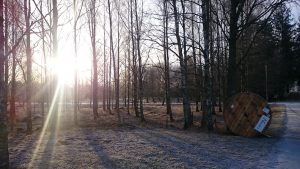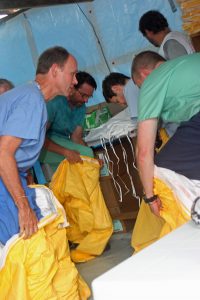Westermarck-seuran vuosittaiset Sosiologipäivät ovat jälleen käsillä. Kuluvana vuonna Itä-Suomen Yliopisto järjestää konferenssin Joensuun kampuksella 15.-16.3.
Viime vuoden tapaan STS Helsinki organisoi päiville työryhmän, jonka tavoitteena on yhdistää tieteen ja teknologian tutkijoita niin Suomesta kuin ulkomailtakin.
Kaksipäiväinen työryhmä “science, technology and society” sisältää kiinnostavia esityksiä, jotka saavat varmasti aikaan hyvää keskustelua.
Aikataulu:
Torstai 15.3. klo 15.45-18.15 Natura N101
- Jose Canada: More-than-human intersectionality: understanding categorization, indentification and boundary-making during pandemic processes
- Salla Sariola & Elina Oinas: Living-with microbes in the era of antimicrobial resistance
- Venla Oikkonen: Pandemic vaccination, vaccine harm and the politics of futurity
- Mikko Hyyryläinen: Kulttuurin ja kognition sosiologia – mielen sosiologiaa vai kognitiivista sosiologiaa?
- Johanna Hokka: Sociology, Science Policy Ideals on ’Excellence’ and the symbolic struggles over legitimate science – Finnish and Swedish Sociology as a case in point
Perjantai 16.3. klo 9.00-11.30 Natura N104
- Vera Raivola: Making sense of a blood bank biobank
- Annerose Böhrer: Metaphors in organ transplantation and the role of donor cards
- Mikko Jauho: Structuring the Cardiovascular Health Arena – the Double Risk Object of Dietary Fat and Cholesterol
- Riikka Homanen: Hetero- ja parinormitonta sukulaisuutta tekemässä? Itselliset naiset ja naisparit yksityisissä hedelmöityshoidoissa
- Karolina Snell & Heta Tarkkala: Goldmining Nordic population(s) – data, health and policy
Työryhmän koordinaattorit ovat Heta Tarkkala, Itä Suomen Yliopisto/Helsingin Yliopisto, (heta.tarkkala@uef.fi), Karoliina Snell, Helsingin Yliopisto (karoliina.snell@helsinki.fi), ja Vera Raivola, Itä-Suomen Yliopisto/Helsingin Yliopisto (vera.raivola@student.uef.fi).
Koordinattorit vastaavat kaikkiin työryhmää koskeviin kysymyksiin.
Tervetuloa!


